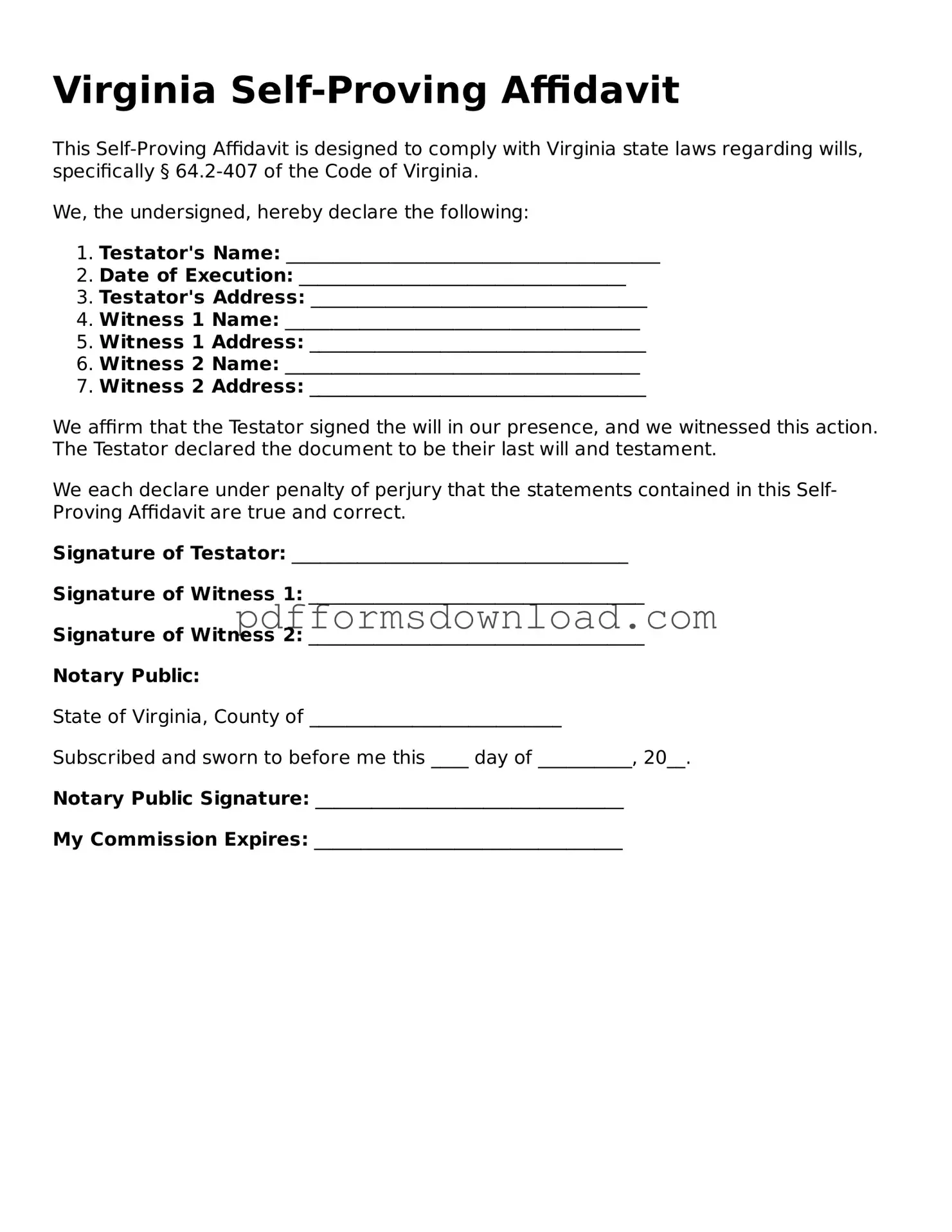What is a Virginia Self-Proving Affidavit?
A Virginia Self-Proving Affidavit is a legal document that allows a testator’s will to be validated without the need for witnesses to testify in court. It essentially confirms that the will was signed by the testator and the witnesses in accordance with Virginia law. This affidavit streamlines the probate process, making it quicker and easier for the executor to administer the estate.
Why should I use a Self-Proving Affidavit?
Using a Self-Proving Affidavit can save time and reduce complications during the probate process. If the will is self-proving, the court can accept it without requiring the witnesses to appear. This can be particularly beneficial if witnesses are unavailable or if their testimony might be difficult to obtain.
How do I create a Self-Proving Affidavit in Virginia?
To create a Self-Proving Affidavit, you need to include specific information. This includes the testator's declaration that they are of sound mind and that they signed the will willingly. The witnesses must also sign the affidavit, affirming that they witnessed the testator's signature. It’s advisable to consult with an attorney to ensure that all legal requirements are met.
Who can serve as a witness for the Self-Proving Affidavit?
In Virginia, any competent adult can serve as a witness to a will, including the Self-Proving Affidavit. However, it is generally recommended that the witnesses not be beneficiaries of the will. This helps to avoid any potential conflicts of interest and ensures the validity of the will.
Is the Self-Proving Affidavit necessary for all wills in Virginia?
No, a Self-Proving Affidavit is not required for all wills. However, it is highly recommended. Without it, witnesses may need to testify in court, which can complicate the probate process. Including a Self-Proving Affidavit can provide peace of mind and streamline the administration of the estate.
Can I revoke a Self-Proving Affidavit?
Yes, you can revoke a Self-Proving Affidavit. If you change your mind about the will or want to create a new one, you should clearly revoke the previous will and its accompanying Self-Proving Affidavit. This can be done by writing a new will that explicitly states the previous one is revoked or by physically destroying the old documents.
How is a Self-Proving Affidavit filed?
A Self-Proving Affidavit is typically filed along with the will during the probate process. It is important to keep the original signed documents in a safe place. When the time comes to probate the will, the executor should submit both the will and the Self-Proving Affidavit to the court.
What happens if I don’t use a Self-Proving Affidavit?
If you choose not to use a Self-Proving Affidavit, the probate court may require witnesses to testify about the will's validity. This can lead to delays and additional legal complications. In some cases, if witnesses cannot be located, the court may question the will’s authenticity, which can create further challenges in settling the estate.

